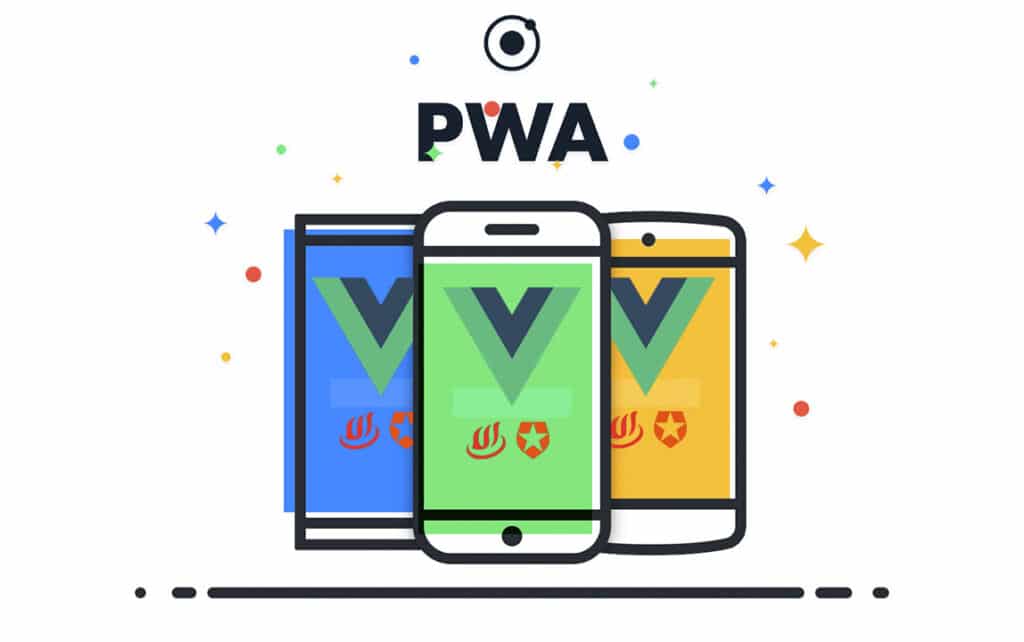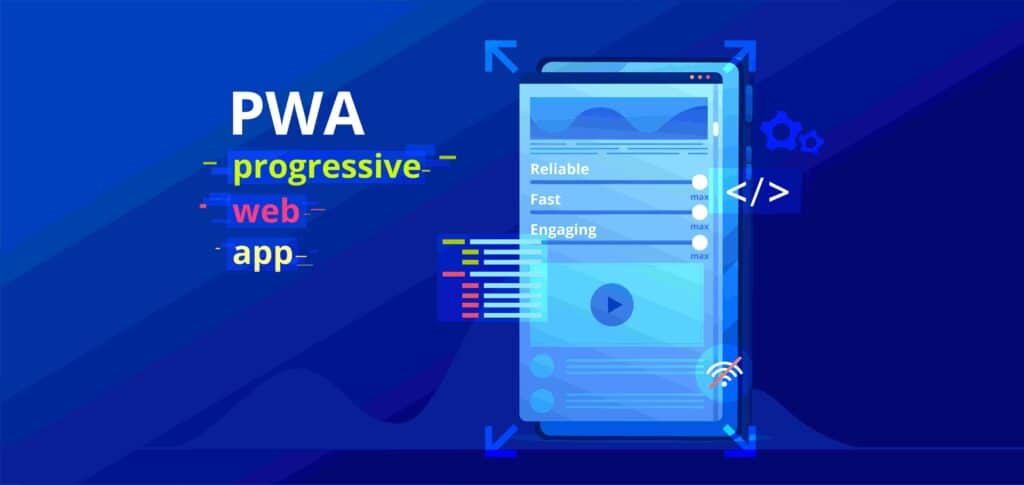In today’s technology landscape, Progressive Web Apps (PWAs) are emerging as a mainstream trend, gaining popularity among businesses and users alike. This in-depth analysis will explore how PWAs not only offer a specialized experience for users, but also enable personalized strategies, time and resource savings. From their architecture to specific use cases, dive into the fascinating world of PWAs and discover why they have become a transformative force in web development.
In today’s dynamic technology landscape, artificial intelligence (AI) has established itself as a transformative force in a variety of industries. From healthcare to manufacturing, AI has demonstrated its ability to optimize processes, analyze big data and deliver innovative solutions. This in-depth analysis will explore how AI, in addition to providing specialized expertise, enables customized strategies that are tailored to the specific needs of each industry. From its fundamentals to practical use cases, delve into the fascinating universe of artificial intelligence and discover how it is shaping the future of technology.
Specialized PWA Expertise:
The essence of PWAs lies in their ability to provide an exceptional user experience. We will delve into how these applications combine the best of web and mobile apps, offering smooth navigation, fast load times and offline features. Specialized PWA expertise translates into higher user retention and satisfaction.
In the IT security arena, specialized expertise plays a crucial role in protecting sensitive systems and data. Cybersecurity experts possess in-depth knowledge of the latest threats and vulnerabilities, enabling them to implement preventive measures and customized strategies to safeguard the integrity of information. Their expertise is reflected in their ability to anticipate and mitigate cyber attacks, offering a level of protection that goes beyond generic solutions.
Customized Strategies to Increase Engagement:
PWAs open up new opportunities to implement personalized strategies and increase user engagement. We will investigate how push notifications, content personalization and adaptive experiences are key to fostering continuous interaction. We will study cases that highlight how personalized strategies drive engagement to unprecedented levels.
In the realm of project management, implementing personalized strategies is essential to optimizing efficiency and achieving successful outcomes. Expert project leaders not only follow a generic approach, but tailor their strategies according to the specific characteristics of each project. This involves customizing processes, allocating resources strategically and adopting flexible approaches according to the particular needs of the project. The implementation of customized strategies not only increases team efficiency, but also ensures success in achieving project objectives.
Time and Resource Savings in Development:
One of the outstanding advantages of PWAs is the significant savings in time and resources during development. We will explore how the single development approach for all platforms reduces complexity and associated costs. We will look at cases that illustrate how PWAs have simplified the development process for companies of all sizes.
In the area of operational efficiency, the implementation of agile methodologies stands out as a key strategy for saving time and resources in project development. These methodologies, such as Scrum or Kanban, focus on flexibility, collaboration and incremental delivery, allowing teams to respond quickly to changes and deliver high-quality products in shorter timeframes. Adopting agile practices not only speeds time to market, but also optimizes resource utilization by focusing on customer priorities and continuously adapting to changing project conditions.
Relevant Keywords in the PWA Context:
Within the PWA universe, keywords play a crucial role in visibility and relevance. We will break down terms such as “Progressive Web Apps”, “Service Workers”, “Offline-First” and “Web App Manifest”. These keywords are essential to standing out in online searches and understanding the fundamental terminology behind PWAs.
Search engine optimization (SEO) stands as an essential component in today’s digital environment, and relevant keywords play a crucial role in this context. Understanding and strategically using specific terms related to a website’s industry and content is fundamental to improving its visibility in search results. Keyword research, competitive analysis and effective incorporation of these keywords into content are essential practices for increasing search engine rankings and attracting organic traffic.
PWA Implementation Success Stories:
Through case studies, we will explore how various companies have achieved success through PWA implementation. From tech giants to small startups, we will examine how PWAs have transformed online presence, improving speed, accessibility and user retention.
The successful adoption of Progressive Web Apps (PWA) has led to success stories in a variety of industries. Companies ranging from online retailers to news services have experienced significant improvement in user experience and business results. For example, some retail stores have implemented PWAs to offer a seamless shopping experience, improving loading speed and customer retention.
In addition, media platforms have opted for PWA to provide faster and more efficient access to information, which has led to increased user engagement. These success stories underscore the positive impact and versatility of PWAs in various industries, demonstrating how this technology can be a powerful tool for driving online success.
Native Feature Integration in PWAs:
As PWAs evolve, native feature integration becomes more relevant. We will investigate how PWAs can access device functions, such as camera and geolocation, providing richer and more personalized experiences. We will study cases that highlight the effective integration of native features in the context of PWAs.
The integration of native features in Progressive Web Apps (PWA) marks a significant milestone in the evolution of these applications. By leveraging device capabilities, PWAs can access native features such as camera, geolocation and notifications, providing more immersive and personalized experiences. This integration allows PWAs to compete directly with native apps in terms of functionality, providing users with the convenience of accessing device features without having to install a separate app. Case studies highlight how effective integration of native features into PWAs has led to richer user experiences and expanded the reach and versatility of these progressive web apps.
Challenges and Solutions in PWA Development:
While PWAs offer numerous benefits, they also face particular challenges. We will explore common obstacles, such as offline data management and search engine indexing. We will discuss effective solutions and best practices to overcome these challenges and ensure smooth and successful PWA development.
Progressive Web App (PWA) development is not without its challenges, and it is essential to address them effectively to get the most out of these applications. Common challenges include offline data management, where PWAs must ensure smooth operation even when users are offline.
Search engine indexing can also be a challenge, as PWAs must ensure that they are recognized and ranked correctly in search results. To overcome these obstacles, effective solutions have been developed, such as the use of service workers to manage offline data and the implementation of specific SEO strategies to ensure proper search engine visibility. By proactively addressing these challenges, companies can develop PWAs that deliver a seamless user experience and maximize their online impact.
PWA Impact on Load Speed and Performance:
Loading speed and performance are critical aspects of the digital user experience. We will delve into how PWAs optimize these aspects, significantly improving load times and ensuring uninterrupted navigation. We will study cases that demonstrate the positive impact of PWAs on speed and performance.
PWA and SEO: Improving Search Engine Visibility:
The relationship between PWA and SEO is crucial to ensure search engine visibility. We will explore how PWAs can be optimized for search engines, ensuring effective indexing and improved ranking. We will analyze cases that highlight successful SEO strategies in the context of Progressive Web Apps.
Emerging Trends in PWA Development:
In the conclusion, we will project a look into the future of PWA development. We will investigate emerging trends, from the evolution of native features to integration with emerging technologies. We will discuss how these trends will shape the PWA landscape and offer exciting opportunities for web development.
Effective Push Notification Implementation: Empowering Interactivity in PWAs:
Push notifications are a hallmark feature of PWAs that drive interactivity and user engagement. We will delve into how companies can effectively implement push notifications to keep users engaged. We will look at case studies that illustrate creative strategies and best practices for making the most of this powerful functionality.
PWA Development in Specific Sectors: Success Stories by Industry:
We will explore how PWAs have made their mark in specific sectors, from e-commerce to news services to tourism. We will analyze success stories by industry, highlighting how PWAs have addressed unique challenges and provided innovative solutions. Studying these industry implementations will provide a more complete picture of the versatility and applicability of PWAs.
PWA User Retention Strategies:
User retention is a critical aspect of the long-term success of any application. We will investigate specific strategies that companies can employ to retain users in the PWA environment. From content personalization to loyalty programs, we will explore in detail how PWAs can become effective tools for increasing user loyalty.
PWA and Accessibility: Ensuring an Inclusive Experience for All:
Accessibility is an ethical and legal imperative, and PWAs are no exception. We will delve into how PWAs can be designed and developed with accessibility in mind, ensuring an inclusive experience for all users, regardless of their capabilities. We will study cases that highlight best practices and innovative approaches to address accessibility in the context of PWAs.
PWA Integration with E-Commerce Platforms: Empowering the Online Shopping Experience:
E-commerce has undergone a significant transformation with the adoption of PWAs. We will explore how PWAs can be integrated with e-commerce platforms to enhance the online shopping experience. We will analyze cases that demonstrate how PWAs have optimized loading speed, navigation and conversion in e-commerce environments.
PWA and Security: Ensuring the Protection of Sensitive Data:
Data security is a top priority in application development, and PWAs are no exception. We will investigate best practices for securing PWAs, from implementing HTTPS to secure user data management. We will study case studies that highlight effective approaches to protecting privacy and security in PWA-based applications.
PWA Development Experience: Essential Tools and Frameworks:
Developers play a crucial role in the success of PWAs. We will explore the essential tools and frameworks that make PWA development efficient and effective. We will delve into the features of Service Workers, Web App Manifest and other key technologies. We will study case studies that illustrate how the right tools and frameworks can accelerate the development cycle and improve the quality of PWAs.
PWA on Mobile Devices: Strategies for Optimal Experience on Small Screens:
With the growth of mobile device usage, optimizing PWAs for small screens becomes crucial. We will investigate specific strategies to ensure an optimal experience on mobile devices, from responsive design to performance optimization. We will analyze cases that highlight how PWAs can deliver a consistent and engaging experience across a variety of devices.
Continuous Updates and Maintenance of PWAs: Best Practices:
PWAs, like any application, require continuous updates and maintenance. We will delve into best practices for seamlessly managing upgrades, ensuring that PWAs always deliver the latest features and performance improvements. We will study case studies that highlight effective approaches to release management and upgrade deployment in the context of PWAs.
Future of PWAs: Innovations and Evolution Perspectives:
In the conclusion, we will explore innovations and evolutionary prospects in the future of PWAs. From advances in underlying technologies to new applications and use cases, we will discuss how PWAs can continue to transform the way we interact with the web. We will project a glimpse ahead, anticipating the increasingly influential role of PWAs in the digital landscape.
Progressive Web Apps are gaining popularity by leaps and bounds, transforming the digital experience for users and businesses. From specialized expertise to customized strategies and time and resource savings, PWAs are redefining the standard for online applications. By adopting this progressive approach, organizations can not only enhance the user experience, but also leverage the economic and strategic advantages that PWAs offer in today’s dynamic digital world.
In the dynamic digital landscape, Progressive Web Apps (PWAs) have emerged as a driving force redefining the online experience. As we explore the many aspects of PWAs, from their ability to deliver specialized experiences to personalized strategies, time and resource savings, it becomes clear that these applications represent more than just a technological evolution. They are the bridge between the web and mobile apps, merging the best of both worlds to deliver a seamless and enriching experience.
The key to the success of PWAs lies in their progressive approach, where continuous improvement and adaptability are fundamental principles. By deeply understanding user needs, optimizing for speed and performance, and implementing effective retention strategies, organizations can unlock the full potential of PWAs.
Data security, adaptability to mobile devices, and efficient use of tools and frameworks are essential pillars for building robust and successful PWAs. In addition, by staying on top of emerging trends and constantly adapting, organizations can ensure that their PWAs remain relevant in an ever-evolving digital environment.
As a conclusion, PWAs don’t just represent a technology solution; they are a testament to the human capacity to innovate and improve the way we interact with technology. By embracing PWAs and taking full advantage of their capabilities, organizations are paving the way for the digital future, where user experience is central and adaptability is the key to continued success. Progressive Web Apps are not just the present; they are the path to the digital future.
Key Tips for Making the Most of Progressive Web Apps (PWA):
Understand User Needs: Before developing a PWA, understand the needs and expectations of your users. Identify the problems that a PWA can solve and how they will improve the overall user experience.
Optimize for Speed and Performance: Loading speed and performance are critical to the success of a PWA. Use techniques such as caching, progressive loading and resource compression to ensure fast load times.
Implement Retention Strategies: User retention strategies are essential. Strategically leverage push notifications to keep users engaged. Create personalized content and use loyalty programs to increase long-term retention.
Focus on the Mobile Experience: Since PWAs are designed to be cross-platform, be sure to optimize the experience for mobile devices. Consider responsive design, touch navigation and adaptability to smaller screens.
Ensure Data Security: Data security is crucial. Be sure to implement HTTPS and follow security best practices. Protect user privacy and comply with security standards to build trust.
Use Efficient Tools and Frameworks: Facilitate PWA development by using efficient tools and frameworks. Familiarize yourself with Service Workers, Web App Manifest and other key technologies. Stay up-to-date on the latest tools that facilitate development and maintenance.
Adapting to Emerging Trends: PWAs are constantly evolving. Stay informed about emerging trends, such as new APIs and functionality. Adapting to the latest innovations will help you keep your PWA relevant and competitive.
Perform Rigorous Testing: Before launching your PWA, perform rigorous testing on different devices and browsers. Make sure the app runs smoothly and provides a consistent experience across all platforms.
Encourage User Engagement: Design your PWA in a way that encourages active user participation. Incorporate interactive features, feedback and customization options. The more engaged users are, the more successful your PWA will be.
Plan Updates and Maintenance: Strategically plan updates and ongoing maintenance of your PWA. Keep the application up to date with new features, bug fixes and performance improvements. Clearly communicate updates to users.
Monitor and Analyze Performance Data: Use monitoring tools to keep track of your PWA’s performance. Analyze data on user engagement, load times and other key metrics. Adjust your strategy according to the insights obtained.
Promote the PWA Effectively: An effective PWA also requires a solid promotion strategy. Use digital marketing channels to highlight the features and benefits of your PWA. Educate users on how they can benefit from opting into the progressive experience.
By following these tips, you will be able to maximize the impact of your Progressive Web App, offering an exceptional user experience and positioning yourself in the best possible light.





